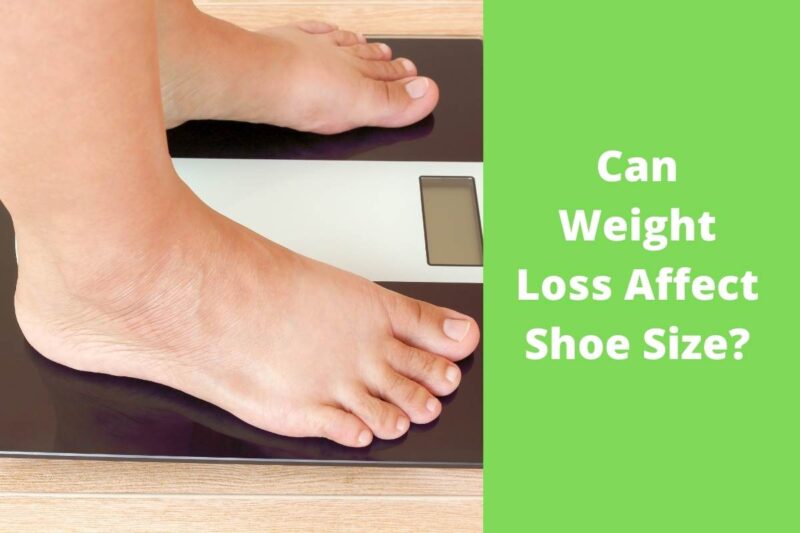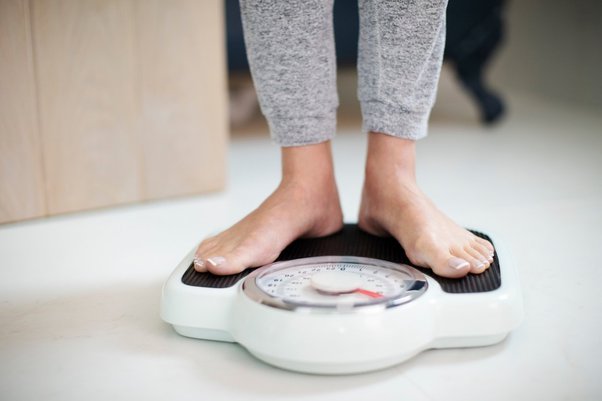Do Your Feet Get Smaller When You Lose Weight?

When you’re losing weight, you might buy jeans in a different size, but buy new sneakers? It turns out that when you lose weight, your feet may also change. Read on as experts explain how losing weight can make your feet smaller and other foot-related changes that can happen when you lose weight.
Table of Contents
Do Your Feet Shrink When You Lose Weight?
Significant weight loss can reduce fat and make your feet smaller. Even if you lose extra pounds, your foot length and bone structure won’t change. However, you may notice that your feet lose some width.
When you gain weight, your body distributes fat throughout your body. Fat gets into your belly and arms, and if you gain significant weight, you’ll find fat deposits on your feet. Women typically grow to half a foot after pregnancy, and our feet tend to get longer as we age.
Your shoes may be a little tighter than before. Excess fat deposits can put extra stress on your foot bones, making your feet flatter. The extra weight your feet carry can wear down your foot fat pads and cause foot pain.
Don’t expect to drop from a size 10 to a size 8 just by losing weight. Significant weight loss may make your shoes feel a little loose because you will lose some of the fat covering your feet, but not as dramatically as you would like.
This is because your natural foot structure remains the same. When you lose weight, the bone structure that makes up your foot’s skeleton doesn’t change, but tendons and ligaments can stretch and become looser. Even if you don’t notice a dramatic change in your shoe size with weight loss, you may notice other benefits for your feet.
Can Your Foot Actually Shrink?
Yes, but your bones don’t move.
When our bodies lose weight, yes our feet can lose weight too, but the actual structure of your feet – starting with the bones – remains the same. However, you will notice that there may be less inflammation and less swelling in the feet due to the loss of body fat. This will make your feet feel constricted.
How Weight Loss Affects Your Feet

When you carry too much weight, your feet can suffer. Over time, the excess weight stretches out of the connective tissue, your foot muscles tighten to support you, and the natural fat pads that cushion the bottom of your feet wear away. You may also experience plantar fasciitis, a painful inflammation of the tissue on the bottom of the foot, and ankle pain.
Did you realize that every small step you take puts more than 120% of your body weight on your feet? The rule of thumb is that, depending on the recommended size and weight, each additional pound of excess weight increases the load capacity by about 4 to 5 pounds.
You can use this math to determine how much less pressure is on your feet when you lose weight. For example, if you lose 10 pounds, you’ll lose about 50 pounds of stress on your feet.
With this decompression, the motion of the foot can be improved, reducing the force you use to hit the ground.
Other Ways Weight Loss Might Affect Feet
In addition to reducing the size of the feet, weight loss can also affect the function of a person’s feet when they stand and move. Here are two common changes that can occur:
- Improved biomechanics: Weight-related stress on the foot can flatten the arch of the foot, leading to hyper pronation, or inversion of the ankle when walking or running, increasing pain and risk of injury, says Dr. Proussy. Losing weight can improve pronation and arch shape, which can help reduce the risk of injury.
- Reduced-force pedaling: Your feet and ankles absorb roughly 120 percent of your body weight in each step, says Dr. Wurster. (If you run, that’s 275 percent of your body weight.) That’s probably why research shows a direct relationship between body weight and chronic heel discomfort. A study published in the journal Gait and Posture found that a 10 percent weight loss resulted in a significant reduction in the force on the soles of the feet, which may reduce foot pain.
Other Factors That May Affect Foot Size
Changes in body weight aren’t the only reason you notice your feet getting longer or smaller. Here are three additional reasons why foot size may vary:
- Pregnancy: When a person is pregnant, the body increases the production of the hormones relaxin and progesterone, two hormones that relax ligaments, relax joints, and help the pelvis widen during labor, says Dr. Wolster. “It also relaxes the ligaments in the foot, which leads to a lower arch, which results in a larger foot,” she explained.
- Aging: Over time, the ligaments in the foot naturally become looser and the foot spreads, says Dr. Prussy. The fat pads on the ball of the foot and heel may also thin with age, reducing the overall width and depth of the foot.
- Certain medical conditions: Conditions such as arthritis can alter the structure of the bones in your feet, affecting their shape and size. “Arthritis can lead to irregular bone growths called osteophytes and changes in the position of the foot, including a collapsed arch,” Dr. Wooster said. If you experience pain, skin changes, swelling, or another foot-related discomfort, check with a podiatrist or regular health care provider to find out.
Conclusion
Losing weight doesn’t affect the structure of your foot bones, so it stays the same length. However, significant weight loss may cause your feet to lose some fat coverage.
There is no specific exercise that will target your feet to lose weight. However, sticking to traditional weight loss strategies may help you reach your goal weight.
Aerobic exercise such as dancing can help you lose weight. You can also do strength training.
A healthy low-calorie diet, along with supplements like CBD oil, can help you lose weight by suppressing your appetite or interacting with body fat deposits.
Tags: Feet size, Lose Weight